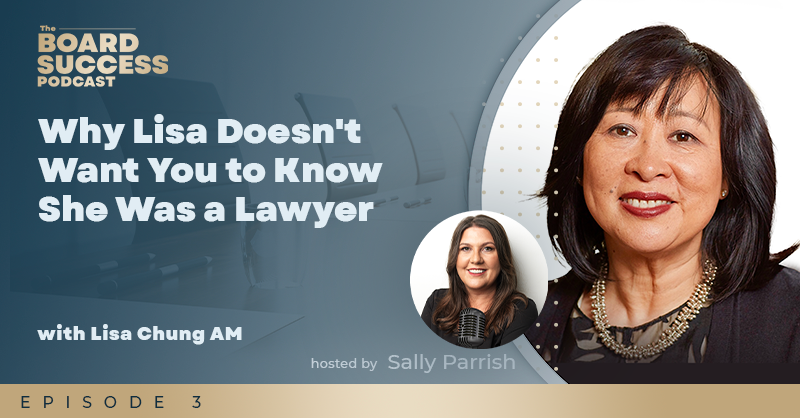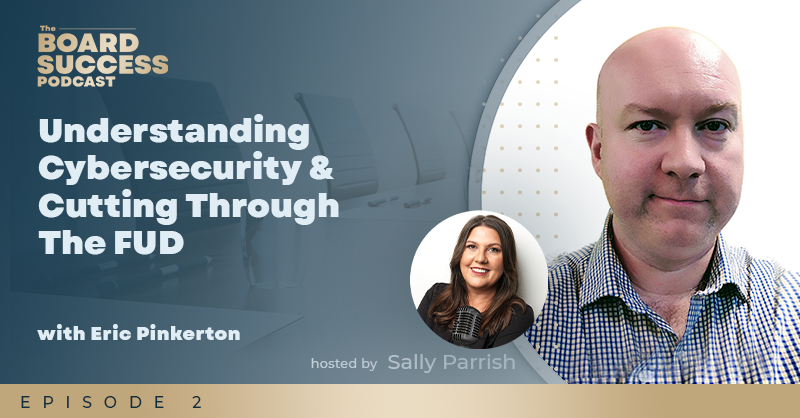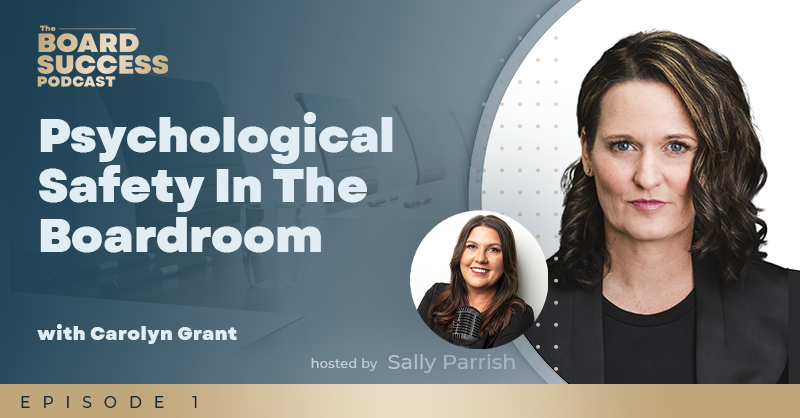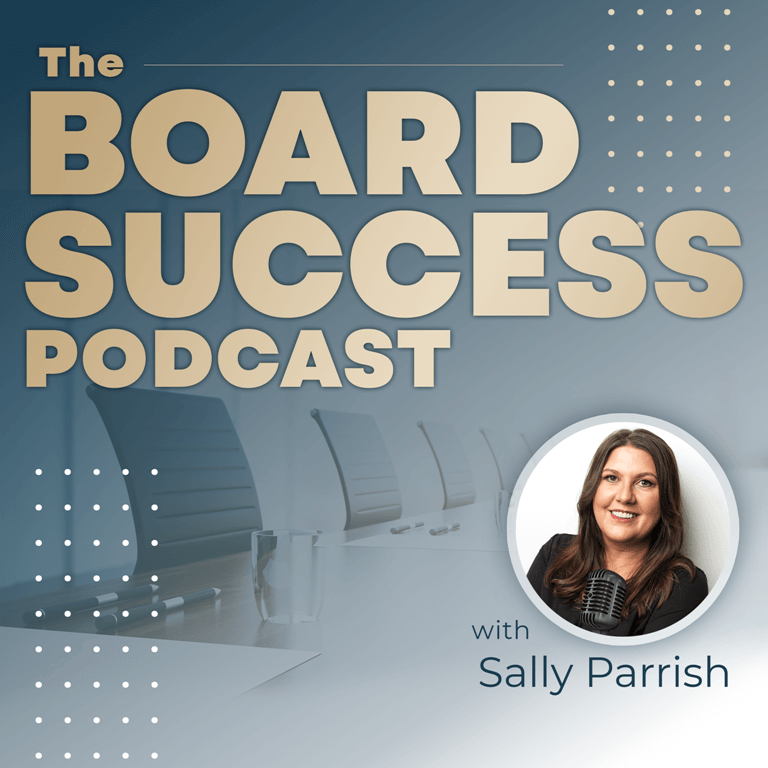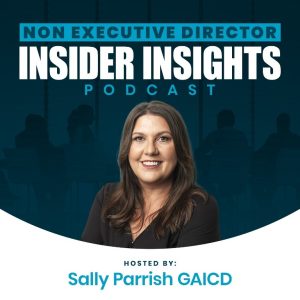An Interview with Kim Seeling Smith
Sally Parrish interviews Future Trends Expert Kim Seeling Smith
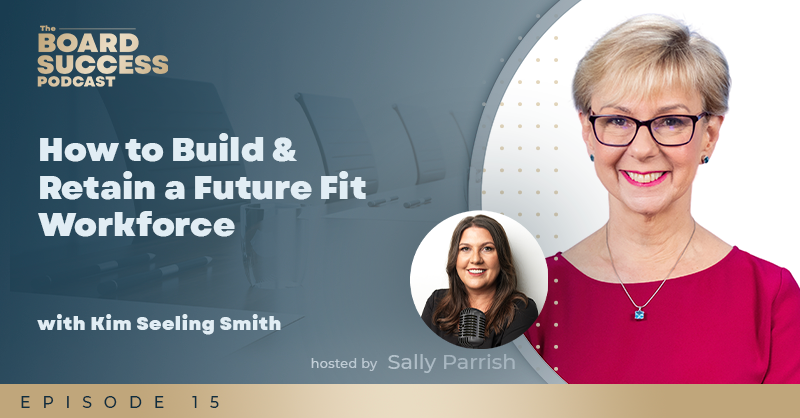
Future of Work expert, Kim Seeling Smith helps organisations build and retain a future fit workforce to reach their commercial goals, create thriving cultures, and successfully navigate the post-pandemic world. She engages audiences as a master storyteller, passionate educator and trend translator.
In this episode Kim joins us to share her thoughts on what she predicts will be the 3 key areas of disruption impacting on our workforces. Reflecting on key ideas from her book "Mind Reading for Managers" and insights she has gained in the field conducting over 5000 exit interviews, Kim clearly explains why the 'ordering a take away' approach to recruitment has to change if we are to navigate the next decade of employee shortages and build future fit workforces.
Kim has literally had a seat at the table with Sir Richard Branson for the innovative work she does around the Future of Work, was named a Top 101 Global Influencer on Employee Engagement, wrote THE how to guide on 1:1 employee check-ins, Mind Reading for Managers, and co-wrote a Career Development Guide with mega author Brian Tracy.
You've probably seen Kim on Sunrise and The Today Show, or read her articles in Forbes, Fast Company, SmartCompany, CEO Magazine, CNBC Online, the Australian Financial Review, the Sydney Morning Herald and many other publications.
FURTHER INFORMATION
Find Kim on Linkedin: https://www.linkedin.com/in/kimseelingsmith/
Buy Kim's book Mind Reading for Managers: https://www.igniteglobal.com/kims-books/
Request a copy of the white paper"9 Keys to Keep Your Best People From Walking Out The Door": https://go.igniteglobal.com/9-currencies-of-choice-cheatsheet
More information on the "100% Human At Work" initiative: https://www.human-atwork.org/movement
Ignite Global Website: https://www.igniteglobal.com/
Click Here to View the Podcast Interview Transcript with Kim Seeling Smith
Kim Seeling Smith 00:00
We have to stop treating recruitment like we're filling a takeaway order. We have to treat it like the business development process that it is. if you're sitting on the board of a company, and the company is looking for new business, you don't put an ad saying XYZ Company is looking for more business come on lineup, apply. But that's how we treat recruitment. That's what we do. That's exactly what we do. We need to understand what human skills we’ll need in the coming years, and then put together a program to develop the relationships with those people.
Sally Parrish 00:39
Hi, I'm Sally Parrish, Amazon, Best Selling Author of the essential Field Guide for company directors and founder of The Board Coaching Institute. I've been in on and around boards for over 20 years. And if you like me are passionate about the boardroom, then this podcast is for you. And I'd love you to join me on this mission to decode board success. What is it that sets some non executive directors apart from the rest? How can you enhance your leadership skills so you can be highly effective in the boardroom? And what will it take to make board success reality for you? I hope you enjoy these episodes as much as I love making them and that they unlock the secrets for you to gain a competitive advantage and have massive impact and influence in your board roles. Let's get started.
Joining us today is the fabulous Kim Seeling Smith from Ignite Global. Welcome, Kim.
Kim Seeling Smith 01:47
Thank you, Sally. So excited to be here.
Sally Parrish 01:51
Kim, start off by telling us about yourself from what you do.
Kim Seeling Smith 01:54
So I want to preface this, I want to give you a little bit of context, because I think that the listeners who I know are either board members or aspiring board members, many of them will relate to this.
I started my career very differently than how I've ended up. I actually started my career as a KPMG trained CPA. Yes, I'm a recovering accountant. And I say that because I work in the future of work, I work around talent attraction and retention. But the way that I do that, because of my background, as a CPA trained in the United States with KPMG, I wear a commercial hat, along with a people hat. And I believe that it is incredibly important to continuously try to strike the balance between the needs of the organisation and the needs of the individual. So I think my commercial training has really informed that and helped me with that.
But then in, too long ago that I care to mention, a long time ago, I discovered that I wasn't a very good accountant and I fell into recruitment. And I spent 15 years recruiting, first in the United States, then New Zealand that got me to Australia. And I've been here for about 15 years, just became a citizen last week, which I'm very proud of. But in that 15 years of recruiting, I interviewed over 5000 people and I placed. I don't know how many hundreds, if not thousands of people, which informs what I teach around talent attraction, I've got some unique IP around that. But it also gave me a treasure trove of information around how to retain staff, which is a huge issue today.
And when I started this business, Ignite Global in 2009, I decided to use this treasure trove of information and instead of being paid to put bums in seats, I wanted to help organisations keep the right bums in the right seats. And then finally in 2015, I realised that the workforce was going through a monumental shift. Now I didn't foresee COVID I don't know of too many people who did foresee COVID. But I recognised that the workforce is going to be changing back in 2015. The data was saying that by 2025 we were going to be in the midst of this massive skill shortage. COVID brought that forward to 2020. So I became passionate about studying workforce trends. And since 2015, I've been a future of work expert along with talent attraction and retention.
Sally Parrish 04:31
I want to position why I've invited you along today, because there's a lot of synergies in our work, right. So you work from the side of the business, how do they attract or train really great talent. I work with the talent and it's around how do you maintain your mojo or your love or your passion for your work? How do you stay switched in and we've got this kind of intersection between our work and I'm gonna give the the financial term because you started it. So I'm going to carry on.
It's the quadruple bottom line reporting, right? Years ago, how much profit are we making, and then it became more profit and people. Let's have doughnuts on Fridays, let's have great facilities for our staff. Flexi time, if they start before nine, they can leave before five. And it's so much more than that, right? It's wellbeing, and it's attraction and engagement and a really, really massive umbrella that a lot of your work falls under. But it's also the planet, that ESG and doing the right thing. And I know your work also encompasses that as well.
But the big P, Kim. The P that you and I could chat about all day long, the magic button. And I think everyone's looking for something more difficult, complex or sophisticated than this. They keep scurrying off looking for other things, but it keeps coming back to this. Purpose. Its purpose, that's all it is. We try these incredible incentives and we tweak the KPIs, it doesn't matter what you do, that purpose will always be underpinning successes, or failures for the business and or the individual. So I'm really, really excited to have you on today and to talk about that.
Before we get into it, though, like I'm really, really excited about this, this project that you're working on at the moment. “A 100% Human at work”. Can you just tell us a little bit about that?
Kim Seeling Smith 06:35
Yes, it's incubated by Richard Branson's Virgin Unite group, which is his philanthropic arm. And in 2016, I was lucky enough to be invited to go to Necker Island. And the reason why I decided to take up that invitation other than to spend some time with Sir Richard himself and George and Amal Clooney. That's a story I'll have to tell you over a glass of wine sometime.
What really drew me to that gathering was their focus on this 100% Human at Work initiative, which at that time in 2016, was a new initiative. And it's an initiative that is a passion project of Richard's, because Richard says, hire the right people, the people will take care of the customers. And so this runs through the DNA of everything that he's done, in terms of his commercial ventures. And then he and the President of Virgin Unite, Jean Oelwang actually came up with this 100% Human at Work initiative, which is specifically designed around working with organisations to develop cultures where people can bring their whole selves to work. And over time, it has morphed into really concentrating on that quadruple bottom line. In fact, the latest conversation, which I'm going to be a part of in 10 days time here in Sydney, is how boards need to introduce this framework. What are board's responsibilities when working with the organisations, on the boards that they sit on? What is their responsibility for helping their organisational cultures be able to bring their whole selves to work? What is the bottom line effect? Why is it the good, the right thing to do? And just looking at do we need a board framework that encompasses 100% Human at work? So there are a number of different discussions around 100% Human going on. And I'm thrilled that about nine months ago, I was actually asked to be on the global steering committee for 100% Human At Work. So it's an ongoing passion project of mine. It's something that I do in my spare time, if you will. But it is something that very much aligns with my own DNA and the DNA that runs through my business. So it's pure joy for me to work on.
Sally Parrish 08:50
Yeah, congratulations. That's such an exciting project to be working on. And I can see the parallels between that and your work life and your personal interests. So I can see why you're so excited and ignited by that. And so I can see how that all kind of threads together for you.
For anyone listening today, there's gonna be lots of different references. So we're referencing your fabulous book that I can see you've got behind you there, Mind Reading for Managers. So we're going to be talking about some of the principles from that book, some of the principles from this really exciting Human at Work initiative that you're working on. But also behind the scenes, there's this fabulous white paper and book in progress. So we'll take a deep dive we're talking about some of these topics. And then at the end of this episode, we'll reference where listeners can find out a bit more about each of these different things. So for now, we'll just take a deep dive in.
So Kim, the three major disruptions that all businesses are dealing with right now. Can you tell us about those?
Kim Seeling Smith 10:00
Yes, this comes from when I started studying the trends in 2015. One of my innate abilities is pattern recognition. And when I started studying the trends around the future of work, around what we will be dealing with in the business world, it really started to form into three major disruptions.
And I started this thought process around these three disruptions just before COVID hit. But then, like so many other things, COVID accelerated what I was seeing in the marketplace. And now I really think that businesses are going to be dealing with three major disruptions between now and at least 2030, probably beyond.
The first one is technology. ChatGPT has been out for almost a year now. There are a number of different AI tools. You and I were talking about this before the podcast started, COVID accelerated technology implementation. I work with a lot of different organisations, 34 different industries, and I don't know of an industry, that's not seriously considering how to automate at least part of their business. And then you overlay AI on to that. And you have just this accelerating rate of technological implementation.
Now from a workplace and workforce perspective that actually informs how we do what we do. So as leaders and as board members, we need to be thinking about strategic workforce planning. What types of skills will we need to achieve our strategic objectives, our business goals out a number of years, however long the business is planning for. How many of those skills will be automated? And how many of those skills will be required by humans? And how will we find these humans? We are in the midst of a critical skill shortage.
And one of my favourite questions, not, that I hear from senior leaders. Well, in fact, it's not so much of a question as it is a statement. And the statement goes something like this, I hope we do go into a recession, because that'll put those people back in their box. Can you imagine in this day and age, but thinking that the recession, if we do go into a recession is going to make people go back to where they used to be where they were happy to have a job that would take a job for life?
Sally Parrish
They’re more appreciative right?
Kim Seeling Smith
Yes. But those days are gone, that ship has sailed. And we've never gone into a recession at 3.5 - 3.7 (it just ticked up) percent unemployment. So the trends, the demographics show that we are going to be in this skill shortage until at least 2032. So we need to recognise that technology is going to change the shape of our roles, and we need to be thinking about strategic workforce planning.
Then the second disruption is the big societal shifts that we're seeing. The shifting geopolitical, landscape, wars, wars brewing in Europe, the war, potentially on our doorstep with China, supply chain disruptions. The big one, climate change, we're in for a huge bushfire season here in Australia, according to the press yesterday. So businesses need to be more innovative, more agile, to communicate more transparently, and to be more collaborative, because it's going to take more heads than just the CEO, just the board, just the senior leadership. We need to involve the people at the coalface to help us solve these challenges. So that means that we need to have the right people in the right seats, it's more important now than ever before. Good enough is not just good enough. And I'm seeing a lot of managers make compromises in their hiring decisions because of the skill shortage, but the business is going to pay for it later. Because they're not going to have the right people to be able to solve these big challenges, or on the flip side, seize the myriad of opportunities that are presented by these challenges.
Who was the person who said “Don't let a good crisis go to waste”? I remember the quote and not who said it. But there are lots of opportunities that come with these challenges. But of all these disruptions, I believe that the third disruption is actually the most impactful and that's what I call the rise of the empowered workforce. People, especially after three plus years of pandemic induced reflection, have become very clear on what they want, what they're no longer willing to put up with. And they are willing to vote with their feet and we're seeing it. We're seeing the large numbers of people shifting jobs. Starting with the great resignation in 2021, but in 2023 it's accelerating in certain industries in Australia. So we really need to understand that the workforce has changed, that they are no longer willing to put up with bad managers, toxic work environments. They're no longer willing to put up with a company without that P word that you and I talked about early on, that purpose. They're no longer willing to put up with a job, a career that doesn't give them value, give them that sense of purpose and give them that career growth.
So boards need to understand that in guiding their senior leadership. Many of the senior leadership have their heads in the sand, or they put it in the too hard basket. So I think one of the emerging responsibilities of boards is to hold out that torch and to hold them accountable for dealing with these disruptions and for recognising that the old world is gone. We don't know what the new world looks like yet. But it's not going to look like the old world. And there are definitely going to be companies that fall over because they cannot understand these new trends, and embrace them and deal with them, that will not allow them to attract and retain the staff that they need to achieve their business goals.
Sally Parrish 16:14
Yeah, it's such a wake up call, right? That whole pandemic, and I mean, as a Victorian, we spent more time in lockdown than out of it. But that pandemic was such a period of reflection for so many people. We know that it impacted the divorce rate, we know it impacted the pregnancy rate, it impacted so many areas. And I'm really, really keen to see what this looks like in 50 years time, because we all know that it has created a ripple, but we don't know where that ripple will take us yet. So we know the impacts there, but what impact it will have.
And I think the phrase is the genies out of the bottle. For a lot of us the mindset was get up, go to work, work, come home, get up, go to work, come home. And we will as coaches we always talked about work life balance, right. But there was, there was never a way of achieving that or providing that. And then suddenly, you're working from home and you're like, well, actually, I can balance work life, I can work and do home domestic stuff and be equally productive in both. Rather than always guilty that I haven't done the other thing to what I'm doing right now. And I'm at home worried about what I haven't done outside and I'm outside worrying about what I haven't done in work.
We know that there is a way that we can combine this work life working from home type thing. We just haven't figured out how. There's a lot of high level conversations that are around, how can you be responsible for your employees wellbeing, if you're not physically seeing them? How can we be effective decision makers, if we haven't got the depth of relationship that you get from breaking bread. If you're there every day and you're having coffees and lunches together. There's a deepness to that relationship that a video screen just cannot provide.
Kim Seeling Smith 18:18
I've got a little bit of a different take on that, quite frankly. And don't get me wrong, there are some real challenges that we need to solve with remote work and hybrid work. And going back to the way things were again, not an option.
The number one search term on Seek currently is work from home. Before function, before industry, it's work from home. People want that flexibility. But in order to solve these challenges, first of all, we need to stop measuring time under the desk, or with feet under the desk time in the seat, we have to switch our mindset to measure the common term these days is OKRs. I don't care if you call them OKRs KPIs, we call them TROs target rich objectives. My clients call them TRO's. But we need to set outcome based objectives. What does done look like and how is it measured and holding them accountable to these outcome based objectives. We shouldn't have to care where they do their work, as long as they're achieving their goals. When they do their work. Now, wellbeing I'll get to in a second. But we shouldn't have to care where, when or how they do their work. As long as they are achieving they’re outcome based objectives. They're hitting those measurable results. And they're doing it legally, ethically, morally and in alignment with your company values. So we talked a little bit about purpose before that is incredibly important, gaining importance with attracting talent, having a compelling purpose that articulates the impact that you make on world and I am not being hyperbolic on that if we had more time on share stats and studies with you, anybody who wants that research, feel free to reach out to me directly happy to share my research around that. But not only having the purpose, having that compelling purpose, but having a set of values that you truly live by, work by, make decisions by, recruit by and fire by. So if you have those boundaries in place, that compelling purpose to inspire people, those boundaries around values that will dictate what right action is, and those outcome based goals to hold them accountable. We can facilitate working from anywhere.
Now the well being piece that gets into my clients joke with me, my name is Kim Seeling Smith, my initials are KSS. And they call me the KISS principle. They say that I should rebrand the KISS principle into the Kim Seeling Smith principle. Because I'm a keep it simple kind of gal. I think that we overcomplicate this, these things. I think that a lot of leaders twist themselves up into knots trying to figure out how to solve these challenges, when sometimes the simplest solution is the best. So in terms of well being, without a doubt, the most valuable thing that you have. In fact, a lot of leaders talk about how entitled the workforce is these days. And I say Yes, you bet they're entitled, they're entitled to your time, they're entitled to your attention, they're entitled to your support. And that's really all that they need. Now, if you're working side by side, just like some marriages, if you're together with somebody 24/7 you might become more comfortable with them, you might just, accept that they're always there, and they decrease in priority, scarcity will actually increase the value. So I think that we have a real opportunity to develop deeper relationships based on scarcity. So the time that you spend with your teams makes that time meaningful. And sometimes it's going out for coffee, sometimes it's having conversations around their career development, sometimes it's having conversations around how to solve the challenge bringing them into the tent, and collaborating with them on how to solve a challenge. But I think that we have the opportunity to treat scarcity as a valuable commodity that it is, and to use that to develop those deeper relationships and to provide that well being. So if you look at the research, what people need is clarity and certainty that's accomplished with those outcome based goals. And they need to feel valued, that's accomplished by spending time and they want to grow, they want to learn, grow and develop. And if you provide those things to them, and have a compelling purpose and a set of values, you will exponentially increase your employee engagement and your employee retention, and I've got my own personal clients that will be happy to give testimonials to that effect. So it doesn't have to be difficult. But you do have to think differently, you have to put on a different perspective around these things.
Sally Parrish 23:21
I love that and you said around we compromised if we can't find the right person for the role we compromise. And I'm guessing that's where the problem starts, right. Because if you haven't got the right person in the role, they're not going to perform their best. So you're going to be more of a micromanager. And you're actually taking away all the things that would inspire them and help them to grow into that role potentially, by hovering over them. And I know from your research from your book, the mind reading for managers, and I think you just said it there. People want the stretch. People don't want to just tick the box and get the work done and guide, they want to feel fulfilled in what they're doing. So if they're the right person in the right role, and they've got that opportunity to stretch, they're going to be more productive anyway. How do we manage that then we have a skills shortage. We need people in roles. What do you do where you're, having to make a compromise for the sake of keeping the business moving? What are your options?
Kim Seeling Smith 24:28
So the first thing and this is not a short term fix this is a long term fix. And this I have been talking about this since probably 2013 or 2014. We have to stop treating recruitment like we're filling a takeaway order. We have to treat it like the business development process that it is. So if you're sitting on the board of a company and the company is looking for new business, you don't put an ad in the Sydney Morning Herald or the Melbourne Age or the AFR saying XYZ company is looking for more business, come on, line up, apply. But that's how we treat recruitment. That's what we do. That's exactly what we do, we put an ad up on Seek or Iindeed, or choose your online website. Or maybe we go to a recruiter and we say we have an opening, we need to fill that opening, we're going about it all wrong, we need to understand, again, that goes back to strategic workforce planning, what human skills will need in the coming years, and then put together a program to develop the relationships with those people. So that needs of your organisation intersect with the needs of their career, they're already in your orbit. And it's such a no brainer to say, Sally, I'd love to come talk to you about working for us at Ignite global, you know us we know you, we know what you're capable of, we know what you want to do, it's a no brainer. But most organisations don't do that. Because this is the hard road, it's much easier to put an ad on Seek and to compromise. But what they don't realise is the amount of time, energy effort and money that they spend in putting the wrong people in those roles in compromising. So it's not a quick fix. But it is the only fix. And it also allows you in your recruitment program to start thinking more laterally about how you're filling roles. Take, for example, the engineering industry, Professionals Australia says that Australia will have 200,000 more qualified engineering roles available than qualified engineers by 2040. So that means that we're not going to be able, until we develop or perfect human cloning, we've got to think more laterally about how we do as much or more engineering work with fewer engineers, or is there another way of attracting people into the industry and getting them qualified rather than the traditional route that we've been doing before? It's this level of thinking that boards need to be challenging their senior leadership, they're CEOs to think about because this is the only way through this massive skill shortage.
Sally Parrish 27:13
And I hope boards are listening to this as well, Kim, right, because this applies to boards, you have an opening come up. I mean the board works on the basis of succession planning and churning, right? That's how a board should operate. And if they're to sit there and really think about, what are we going to need in two years time? Where's the strategy likely to go? What's the skill set we need? And if they could start getting really clear on their purpose and the skills that they need and the values of that person that they want to work with? Can you imagine how great this will be because those disruptors that you're talking about, were not doing well, in them at board level, technology failing, or you've seen the Optus Headlines, the Medibank Headlines, a Latitude Financial Headline, they're just the big ones right there, what's under that iceberg surface. And what happens with those failings is that they ultimately come back in legislation. So the board must do this, the board must not do that. Whereas if we could get on the front foot of some of these things, and put the right people in the right roles on boards, we wouldn't be having these reputational incidents, this crisis management, it wouldn't be occurring because we'd be able to steer the ship effectively and work from a best practice point of view rather than a legislation guidelines and what we need to do. And I think that that speaks to all three of yours, that geopolitical, the technical and the empowered workforce, if our boards could be more focused on those topics, we could navigate some of those obstacles and crisis that you can foresee and your future of work model
Kim Seeling Smith 28:55
And dare I say, if boards took that approach to recruiting board members, dare I say that we might have an increased number of women and diverse candidates for those boards as well. I've been talking about this for over a decade now. And what enables people to really switch their mindset is to think about that mantra of mine, we have to stop treating recruitment, like we're filling a takeaway order and treat it like the business development process that it is, once you get that mindset in place, the how-tos start to fall out of that, and the how-tos are always easier than that perspective shift. So it's the perspective shift that's needed first, and then we can start brainstorming ideas on how to actually achieve those things.
Sally Parrish 29:42
Yeah, absolutely love that. Kim. Kim, thanks so much for joining us today. I just want to run through some of the resources and tools that you have available for our listeners today. So we've made mention of your really fabulous book, Mind Reading for Managers and that draws on the nine key principles of attracting, maintaining great work staff,
Kim Seeling Smith 30:04
I call it the nine keys to keep your best people from walking out the door. And these nine keys were reverse engineered from over 5000 exit interviews that I personally conducted.
Sally Parrish 30:16
And you actually have a concise report around that, that people can download from your website. So it's the nine keys to prevent your workforce from walking out the door. It's available on your website, can you just give us the name of that website where we can download that report?
Kim Seeling Smith 30:30
Yes, indeed, it's just igniteglobal.com.
Sally Parrish 30:34
So igniteglobal.com, for free download “9 keys to keep your best people from walking out the door”. Or if you want, the more in-depth version, there's the book Mind Reading for Managers. I'm going to put these resources on the show notes as well. But also this upcoming work that you've got going on this really exciting project under Richard Branson's banner, the 100% Human at work, I know you've got a white paper in the background, there's a book behind the scenes. What about people that just want to stay in touch with all this development in the background? How can they get access to the upcoming material?
Kim Seeling Smith 31:11
The easiest way to do that is to download the white paper because if you've downloaded the white paper, you will get the next white paper soon to be named. But it's the holistic model around everything that we talked about purpose values, strategic initiatives in terms of outcome based measurable result targets, and then putting the right people in the right seats, hiring or promoting the right leaders. And then what leaders need to do in the post pandemic world that is going to be the contents of the book and the contents of the white paper before the book. So if they download the nine keys to keep your best people from walking out the door, they will automatically get the next white paper and they'll be the first to know about the new book that is hopefully going to be released at the beginning of next year. In addition to that, please Linkedin with me. I am the only Kim Seeling Smith on the planet. But again, we can put my link to my LinkedIn profile in the show notes
Sally Parrish 32:12
That will absolutely be in the show notes. So Mind Reading for Managers, the book, nine keys to keep your best people from walking out the door. That's a free download. There's an upcoming white paper free download yet to be named. And there's also a book behind the scenes. But if you want access to any or all of those resources, you've got to jump on to igniteglobal.com Kim Seeling Smith, you're an absolute legend. Thank you so much for joining us today and sharing your fabulous insights.
Kim Seeling Smith 32:41
Thank you Sally, it was an absolute pleasure.
Sally Parrish 32:50
Thanks very much for tuning in. I'd love to know what you thought of this episode and what you took away from it. I'd also love to know what topics you're interested in hearing about in the future, and which experts you think should be featured on this board success podcast. If you enjoyed listening, please share with your colleagues who might also have an interest and make sure you click to follow us subscribe to be advised about upcoming episodes. In the meantime, if you're a leader or a successful executive, and you're looking to launch your board career, or if you're an established non Executive Director and you're ready for the next level, check out the resources we have available for you on the website at boardcoachinginstitute.com.au. Until next time, here's to your board success.
